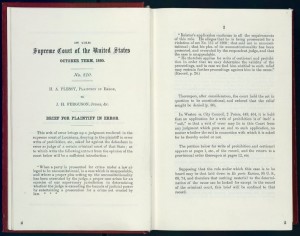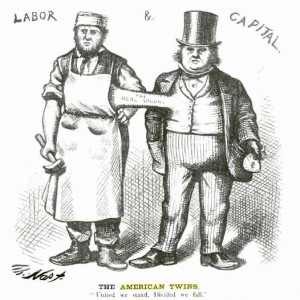 This semester I had the opportunity to take Prof. Edwards’s class Advanced Brief Writing: Briefs that Changed the World. I must admit that I was slightly skeptical of the idea that simply reading remarkable briefs would somehow make me a better writer. But, I’m happy to admit that I was quite wrong in this assumption. Reading the briefs covered in this class have inspired me to try my hand at the various techniques the authors employ when writing these briefs (I make no promises about whether my attempts have proven successful). Hopefully they will inspire you too. Thank you, Prof. Edwards for allowing me to share this list of briefs:
This semester I had the opportunity to take Prof. Edwards’s class Advanced Brief Writing: Briefs that Changed the World. I must admit that I was slightly skeptical of the idea that simply reading remarkable briefs would somehow make me a better writer. But, I’m happy to admit that I was quite wrong in this assumption. Reading the briefs covered in this class have inspired me to try my hand at the various techniques the authors employ when writing these briefs (I make no promises about whether my attempts have proven successful). Hopefully they will inspire you too. Thank you, Prof. Edwards for allowing me to share this list of briefs:
Miranda v. Arizona (Petitioner)
Bowers v. Hardwick (Respondent)
Gideon v. Wainwright (Petitioner)
San Antonio School District v. Rodriguez (both Petitioner and Respondent)
Wards Cove Packing Co. v. Atonio (both Petitioner and Respondent)
Loving v. Virginia (Appellant)
Aikens v. California (Petitioner)
Furman v. Georgia (Petitioner)
Roper v. Simmons (Respondent)
Meritor Savings Bank v. Vinson (Respondent)
Hernandez v. Texas (Petitioner)
Citizens United v. Federal Election Commission (both Appellant and Appellee)
When Prof. Edwards spoke to the Marquette Legal Writing Society at the beginning of the semester, she advised students to read. Since receiving her advice, I have read every opinion by Chief Justice John Roberts that I can get my hands on. If I can soak in even 1% of his writing style, I will die from pure legal writing happiness. Hopefully these briefs will kick-start your reading and make you think about techniques and strategies you can incorporate into your own writing.
Finally, I highly recommend picking up Point Made: How to Write Like the Nation’s Top Advocates by Ross Guberman. We use this book in Prof. Edwards’s class, and it is simply fantastic.


